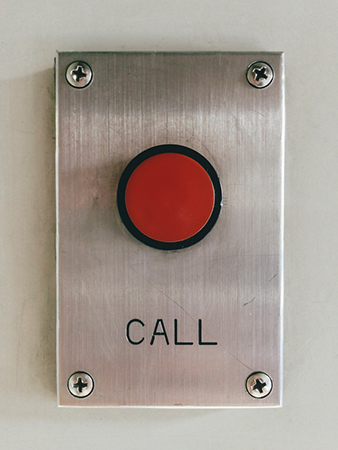
The first and most important thing you should do is tell someone.
Unfortunately, this crucial first step is often the most difficult. Talking about sexual harassment is emotionally demanding and beyond that, deciding who to tell is not always intuitive. The process for reporting sexual harassment varies slightly based on whether you are 1) an employee, 2) a federal employee, or 3) a student. The purpose of this article is to help connect you with the right point of contact and reduce the confusion associated with reporting instances of sexual harassment.
In all cases, if you feel that you are in immediate danger, you should contact local law enforcement as soon as possible. Your safety and wellbeing are paramount!
Non-Federal Employees of Organizations with 15 or More Employees
Sexual harassment1 is a form of sex discrimination that violates Title VII of the Civil Rights Act of 1964. Title VII applies to employers with 15 or more employees, including state and local governments. It also applies to employment agencies and to labor organizations, as well as to the federal government.
If you are a non-federal employee and feel that you have experienced sexual harassment, you may file a charge of employment discrimination at the Equal Employment Opportunity Commission (EEOC) office closest to where you live, or at any one of the EEOC’s 53 field offices. If you are a U.S. citizen working for an American company overseas, you should file your charge with the EEOC field office closest to your employer’s corporate headquarters. In general, you need to file a charge at the EEOC within 180 calendar days from the day the discrimination took place2.
Federal Employees
Federal employees and job applicants to federal positions have similar protections to other employees, but a different complaint process. If you are a federal employee or job applicant and you believe that you have experienced sexual harassment, you have the right to file a complaint.3 Each agency is required to post information about how to contact the agency's Equal Employment Opportunity (EEO) office. You can contact an EEO Counselor by calling the office responsible for the agency's EEO complaints program. Generally, you must contact the EEO Counselor within 45 days from the day the discrimination occurred.
At the National Institutes of Health (NIH), the designated EEO office is the Office of Equity, Diversity, and Inclusion (EDI). All members of the NIH workforce, including contractors, volunteers, and trainees, are welcome to contact EDI and speak to a counselor if they have concerns about sexual harassment.
Students and Employees at Educational Institutions
If you are a student or an employee4 at a university or college, you are protected by Title IX of the Education Amendments of 1972 (Title IX).5 Title IX, and its implementing regulations, 34 C.F.R. Part 106, prohibits sex discrimination—which includes sexual harassment6 —in educational programs and activities. All public and private schools, school districts, colleges and universities receiving federal financial assistance must comply with Title IX.
Educational institutions that receive federal funds must designate at least one employee to coordinate its efforts to comply with and carry out its responsibilities under Title IX.7 In most cases, you should be able to identify your school’s Title IX Coordinator by searching your school’s website using the term “sexual harassment.”
Individuals who have witnessed or experienced sexual harassment may also file a complaint with the U.S. Department of Education, Office for Civil Rights (OCR). A complaint must be filed within 180 calendar days of the date of the alleged discrimination, unless the time for filing is extended by OCR for good cause shown under certain circumstances.8
Everyone
In all cases, it is highly encouraged that you report instances of potential sexual harassment to a teacher, administrator, or management official (you can report the incident/s to your direct supervisor or to any manager you feel comfortable approaching) as soon as possible. The sooner your organization is made aware of a potential sexual harassment scenario, the sooner they can take action to remedy the situation and protect you and others from future harassment.
Both Title VII and Title IX prohibit retaliation against any individuals who report sexual harassment.9 If you believe that you have been retaliated against for filing a charge of discrimination, participating in a discrimination proceeding, or otherwise opposing discrimination, you should immediately contact the appropriate official: EEOC (for employees), your EEO Office (for federal employees), or Title IX Coordinator (for students).
- 1Under Title VII, unwelcome sexual advances, requests for sexual favors, and other verbal or physical conduct of a sexual nature constitute sexual harassment when this conduct explicitly or implicitly affects an individual's employment, unreasonably interferes with an individual's work performance, or creates an intimidating, hostile, or offensive work environment. EEOC Guidance: Facts About Sexual Harassment
- 2EEOC Guidance: Time Limits for Filing a Charge
- 3EEOC Guidance: Overview Of Federal Sector EEO Complaint Process
- 4Employees at educational institutions are protected by both Title VII and Title IX. Employees of educational institutions who feel that they have been sexually harassed should seek guidance from both their Title IX Coordinator and the EEOC.
- 520 U.S.C. §§ 1681 et seq.
- 6Under Title IX, Sexual Harassment is conduct that: 1) is sexual in nature; 2) is unwelcome; and3) denies or limits a student’s ability to participate in or benefit from a school’s education program. OCR Guidance: Sexual Harassment, It’s Not Academic
- 734 C.F.R. § 106.9
- 8OCR Guidance: How to File a Discrimination Complaint with the Office for Civil Rights
- 9EEOC Guidance: Facts About Retaliation and OCR Guidance: Retaliation Discrimination






